 Goa, a state that boasts commendable access to higher education in the country, hosted delegation from academia and industry this November over high level discussions on higher education.
Goa, a state that boasts commendable access to higher education in the country, hosted delegation from academia and industry this November over high level discussions on higher education.
The digitalLEARNING Higher Education Knowledge Exchange – Goa co-organised by Ministry of Human Resource Development, Government of India was organised during 15 – 17 November, 2013. The two-day residential event was convened with the aim of strengthening the knowledge society. The event took into account various topics related to higher education sector through extensive panel and round table discussions. Vice Chancellors from central, state, private and deemed universities deliberated on ongoing initiatives, short-term and long-term objectives for strengthening the country’s higher education system and the challenges and scope for accomplishment of these goals. Keeping in view the inevitable role of technology in enhancement of the teaching-learning experience, the event also engaged several solution providers from the industry who shared their innovations in the domain. The event was inaugurated with a heated discussion on the relevance of Rashtriya Ucchatar Shiksha Abhiyan (RUSA) in giving higher education a new dimension. Other major areas of discussions included skill development initiatives, importance of researchbased curriculum and role of technology in boosting pedagogy.

Rajesh Aggarwal,
Secretary – IT,
Government of
Maharashtra |
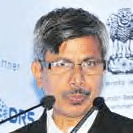
Prof Ajoy Kumar
Ray, VC, Bengal
Engineering and
Science University,
West Bengal |
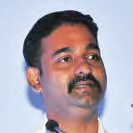
Nilesh B Fal Dessai,
Director IT,
Government of Goa |
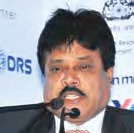
Dr G James Pitchai,
VC, Bharathiar
University,
Tamil Nadu |
Skill Development Initiatives to Boost Employability
• Need to embed employability factor into curriculum, give hands on training to make students industry ready – Dr S S Chahal, VC, Desh Bhagat University, Punjab
• Role of teachers and employers in creating employable graduates needs to be defined – Prof G L Datta, Chancellor, K L University, Andhra Pradesh

Dr G Tulasi Ram Das,
VC, JNTU Kakinada |
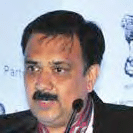
Dr Rupesh Vasani,
Director, Sal Technical
Campus, Gujarat |
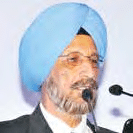
Dr S S Chahal,
VC, Desh Bhagat
University, Punjab |
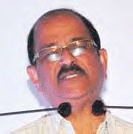
Bhaskar G Nayak,
Director – Higher Education,
Government of Goa |
Role of Research-based Education in Strengthening Knowledge Society
• Every government has been talking of increasing the spending on R&D to at least 2% but it has never increased to more than 0.9% of GDP – Dr W N Gade, VC, University of Pune
• Implications of higher education and research system have global dimensions affecting every sector of the society especially the knowledge society – Prof K Narsimha Reddy, VC, M G University, Andhra Pradesh
• Knowledge generated by research and innovation is the basis for a sustainable social development. Research activities must be integrated with the needs of the society to make it more useful – Prof S Satyanarayana, VC, Osmania University, Andhra Pradesh
• Universities are the fertile field of research and innovations have to be harvested from this fertile field – Dr G James Pitchai, VC, Bharathiar University, Tamil Nadu

Dr Akshai Aggarwal,
VC, Gujarat
Technological
University |

Prof Anjan Kumar
Ghosh, VC, Tripura
University |

Dr W N Gade,
VC,
University of Pune |
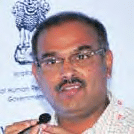
Dr Vinay Kumar Pathak,
VC, Vardhman Mahaveer
Open University, Rajasthan |
Effective Use of Technology to Boost Teaching, Learning & Assessment
• More and more states may find transaction-based solutions attractive, as most universities in Maharashtra too are opting for it – Rajesh Aggarwal, Secretary – IT, Government of Maharashtra
• In Goa, MoUs have been signed between engineering colleges and IITs, wherein the lectures delivered at the IITs is telecast in the colleges – Nilesh B Fal Dessai, Director IT, Government of Goa
• With the help of the use of ICT tools by a teacher, the teachinglearning process can happen beyond the classroom – Dr G Tulasi Ram Das, VC, JNTU Kakinada
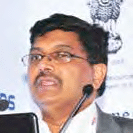
Prof S Satyanarayana,
VC,
Osmania University,
Andhra Pradesh |

B Syama Sundar,
VC,
Yogi Vemana University,
Andhra Pradesh |

Prof Darlando
T Khathing,
VC,
Central University of
Jharkhand |
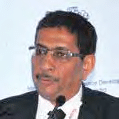
Prof B S Rajpurohit,
VC,
Jai Narain Vyas University,
Jodhpur |
Importance of Introducing Diversified Courses and Programmes in the Curriculum
• It is important to have diversified courses for complete development of a student. Students should not be restricted to their chosen subjects but must be exposed to various ideas and philosophies – Prof Anjan Kumar Ghosh, VC, Tripura University

Prof E T Puttaiah,
VC, Gulbarga
University, Karnataka |

Prof G L Datta,
Chancellor, K L University,
Andhra Pradesh |
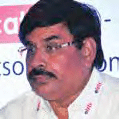
Prof K Narsimha Reddy,
VC, M G University,
Andhra Pradesh |

Prof K P Mishra,
VC, Nehru Gram Bharati
University, Uttar Pradesh |
Role of Technology in Redefining Pedagogy
• If we have to compete globally then we have to introduce a higher education system that is strong, comparable and compatible with world scenario – Prof K P Mishra, VC, Nehru Gram Bharati University, Uttar Pradesh
• Technology is a link to the new knowledge, resources and high order thinking – Dr Rupesh Vasani, Director, Sal Technical Campus, Gujarat
• We can train teachers in a much better way by making use of the technology and in turn teachers can use the same training material or e-learning material to train the students – Prof K Lal Kishore, VC, JNTU Anantapur, Andhra Pradesh
• ICT can be a supplementary tool for better education but it has to be used in such a way that it connects with Indian requirements – Dr Vinay Kumar Pathak, VC, Vardhman Mahaveer Open University, Rajasthan

Prof Manoj Kumar
Arora, Director,
PEC University of
Technology, Punjab |
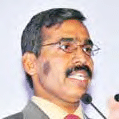
Prof P Rameshan,
Director, Indian Institute
of Management Rohtak |

Prof R Venkata Rao,
VC, National Law School of
India University, Bangalore |

Prof K Lal Kishore,
VC, JNTU Anantapur,
Andhra Pradesh |
Bringing Quality and Promoting Inclusiveness in Education to Meet Student Aspirations
• RUSA will basically be a channel or vehicle through which the resources from the government will be transferred to the state institutions – Bhaskar G Nayak, Director (HE) Government of Goa
• Quality education has two aspects- skill of the learners and perception of the users on their skills – Prof P Rameshan, Director, Indian Institute of Management Rohtak
• Exams like JEE are making students non-analytical – Prof Ajoy Kumar Ray, VC, BESU, West Bengal
• We should focus on internship programs, projects in rural areas and international exposure for holistic development of students – Prof Darlando T Khathing, VC, Central University of Jharkhand
• Engineering education has deteriorated due to faculty shortage, poor laboratory and library facilities and absence of autonomy – Prof Manoj Kumar Arora, Director, PEC University of Technology, Punjab
• The government should work in tandem with private sector to make education inclusive- Prof R Venkata Rao, VC, NLSIU, Bangalore
Critical Role of Industry academia Interface in Enhancing Education Infrastructure
• Four factors required to make student employable- creative abilities, learning at the university, operative skills and the idea of soft skills – Dr Akshai Aggarwal, VC, Gujarat Technological University
• Establishing strong linkages between teaching and research, participation of industry in drafting curriculum and educational policies, strengthening public private partnerships, industry collaboration for revenue generation, constitution of working groups for constant mutual support is essential – B Syama Sundar, VC, Yogi Vemana University, Andhra Pradesh
• Since anybody can access the pool of teachers and knowledge through the use of ICT, it has made it easier to survive in this competitive world – Prof B S Rajpurohit, VC, Jai Narain Vyas University, Jodhpur

















 the aim of providing world class education to each student, this 125 year old school still believes in the traditional value addition system among the students. Fr Santy Mathew S J, Principal, St Joseph’s School, in conversation with Pragya Gupta, Elets News Network
the aim of providing world class education to each student, this 125 year old school still believes in the traditional value addition system among the students. Fr Santy Mathew S J, Principal, St Joseph’s School, in conversation with Pragya Gupta, Elets News Network “This course would enable the participants to master all critical issues relating to international business management and equip them with a better understanding about the global market. I thank the entire WizIQ team for playing a pivotal role in the conceptualization of this course.” – Dr Niladri Das, Ph.D., Assistant Professor, Department of Management Studies
“This course would enable the participants to master all critical issues relating to international business management and equip them with a better understanding about the global market. I thank the entire WizIQ team for playing a pivotal role in the conceptualization of this course.” – Dr Niladri Das, Ph.D., Assistant Professor, Department of Management Studies Exposure to the internet can help pre-schoolers and children in the early elementary grades master literacy and other cognitive skills and also can spur integration of these skills early in their development. Parents and school leaders who look for online opportunities for younger children can be guides to engaging, age-appropriate content. The internet can reinforce everyday learning opportunities and be a powerful tool for fostering interaction among adults and young children. It takes much to conduct the new tool of knowledge in this regard. The task of the teaching gentry must ponder in regard to computing of this sort, they must help teachers, parents, and children use the internet more effectively for learning. For example, they ought to suggest education- related websites for parents and children to visit together – and give them learning activities to do once they get there. Offer education-related help for students online, like after-school tutoring. Provide teachers with professional development opportunities to help them model effective use of the Internet as a tool for students’ learning, including integrating Internet learning with regular classroom learning. If teacher training takes place outside of regular school hours, offer teachers incentives to participate when possible. If teacher training pulls teachers out of the classroom, parents should be made to know why it is important to support this professional development. The usage of the internet to communicate more effectively with parents and students goes a long way to generate interest for all. For instance, launch school district or school websites or publicize websites in newsletters and places where parents are likely to be. Update websites frequently with relevant, timely information. Post exemplary student work online, with teacher commentary explaining why this work meets academic standards. Make websites interactive by soliciting comments or holding public forums about education issues online. Encourage teachers, parents and students to communicate through email, make their email IDs and even communicate off-line with that reference only for generating pulses of craze and interest of being a netizen. And finally, engage the community. This can be very easily done through holding computer and Internet training classes for parents or hosting convenient opportunities for parents, community leaders, librarians, teachers, and others to talk together about children’s use of the Internet. Schools may want to collaborate with libraries, community computing centers, local colleges and universities, and other places that offer alternative access to computers. Educators and parents have been quite concerned over the years about possible negative effects of computer and internet on children’s desire to interact with others. Unlike television, however, the more interactive, child-controlled nature of some computer software can be conductive to sharing, taking turns and playing games together. Also the fact lies to the versatile saying that the familiarity and comfort with computers is certainly useful for daily survival, both in and out of school. The risk associated with this myth comes from placing too much emphasis on the computer as a “must” for children’s future welfare. It’s better to regard computer use as simply one more experience or tool that can support the development of the good old-fashioned learning skills such as being able to read and write, think logically, and solve and analyse problems. It can also enhance the learning process by allowing children to have experiences not possible without a computer. Ultimately out of the study it capsules more of the truth to have this machine as a tool rather than an aid for all times. One must utilize its measures as and when required from the children point of concern.
Exposure to the internet can help pre-schoolers and children in the early elementary grades master literacy and other cognitive skills and also can spur integration of these skills early in their development. Parents and school leaders who look for online opportunities for younger children can be guides to engaging, age-appropriate content. The internet can reinforce everyday learning opportunities and be a powerful tool for fostering interaction among adults and young children. It takes much to conduct the new tool of knowledge in this regard. The task of the teaching gentry must ponder in regard to computing of this sort, they must help teachers, parents, and children use the internet more effectively for learning. For example, they ought to suggest education- related websites for parents and children to visit together – and give them learning activities to do once they get there. Offer education-related help for students online, like after-school tutoring. Provide teachers with professional development opportunities to help them model effective use of the Internet as a tool for students’ learning, including integrating Internet learning with regular classroom learning. If teacher training takes place outside of regular school hours, offer teachers incentives to participate when possible. If teacher training pulls teachers out of the classroom, parents should be made to know why it is important to support this professional development. The usage of the internet to communicate more effectively with parents and students goes a long way to generate interest for all. For instance, launch school district or school websites or publicize websites in newsletters and places where parents are likely to be. Update websites frequently with relevant, timely information. Post exemplary student work online, with teacher commentary explaining why this work meets academic standards. Make websites interactive by soliciting comments or holding public forums about education issues online. Encourage teachers, parents and students to communicate through email, make their email IDs and even communicate off-line with that reference only for generating pulses of craze and interest of being a netizen. And finally, engage the community. This can be very easily done through holding computer and Internet training classes for parents or hosting convenient opportunities for parents, community leaders, librarians, teachers, and others to talk together about children’s use of the Internet. Schools may want to collaborate with libraries, community computing centers, local colleges and universities, and other places that offer alternative access to computers. Educators and parents have been quite concerned over the years about possible negative effects of computer and internet on children’s desire to interact with others. Unlike television, however, the more interactive, child-controlled nature of some computer software can be conductive to sharing, taking turns and playing games together. Also the fact lies to the versatile saying that the familiarity and comfort with computers is certainly useful for daily survival, both in and out of school. The risk associated with this myth comes from placing too much emphasis on the computer as a “must” for children’s future welfare. It’s better to regard computer use as simply one more experience or tool that can support the development of the good old-fashioned learning skills such as being able to read and write, think logically, and solve and analyse problems. It can also enhance the learning process by allowing children to have experiences not possible without a computer. Ultimately out of the study it capsules more of the truth to have this machine as a tool rather than an aid for all times. One must utilize its measures as and when required from the children point of concern. Though the country boasts of producing the maximum number of engineering talent in the world, only 1 percent of Indian IT students have been found skilled in the information security space.
Though the country boasts of producing the maximum number of engineering talent in the world, only 1 percent of Indian IT students have been found skilled in the information security space. Goa, a state that boasts commendable access to higher education in the country, hosted delegation from academia and industry this November over high level discussions on higher education.
Goa, a state that boasts commendable access to higher education in the country, hosted delegation from academia and industry this November over high level discussions on higher education.























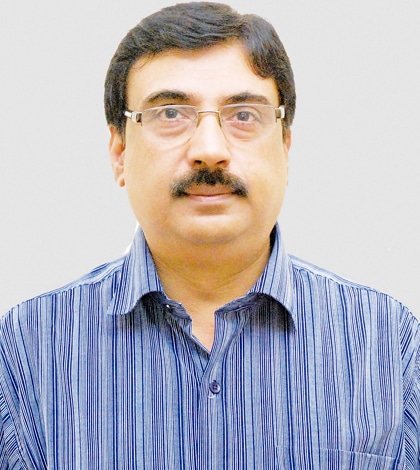
 A Murali Mukund, Chairman, Jubilee Public School, Hyderabad talks about changes in education system over last 25 years. In conversation with Seema Gupta, Elets News Network.
A Murali Mukund, Chairman, Jubilee Public School, Hyderabad talks about changes in education system over last 25 years. In conversation with Seema Gupta, Elets News Network.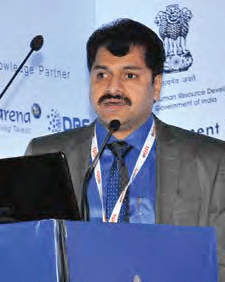
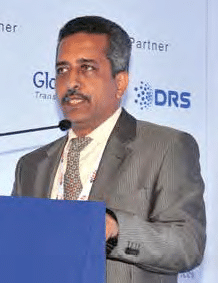
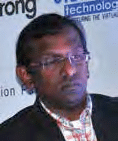

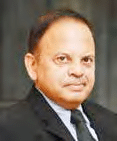 Dr Govind,
Dr Govind,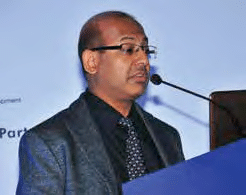
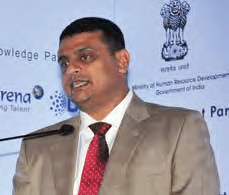

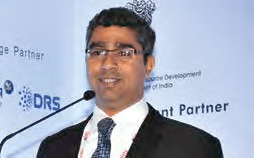

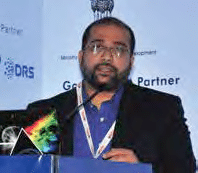

 Besides providing an all round education, Sanjay Godhawat International School, Kolhapur, Maharashtra offers guidance in critical thinking, social openness and purposeful research. Principal Sasmita Mohanty, in conversation with Seema Gupta, Elets News Network
Besides providing an all round education, Sanjay Godhawat International School, Kolhapur, Maharashtra offers guidance in critical thinking, social openness and purposeful research. Principal Sasmita Mohanty, in conversation with Seema Gupta, Elets News Network

 viewed favorably while evaluating a student’s learning. Pedagogically designed computer-based tests, going beyond standard multiple choice questions will help measure knowledge and skill levels of learners and several strategies can be applied to motivate learners using Online/ Computer-Based Assessments. This is the philosophy behind the design of marksplus- Test Authoring and Online Assessment System.
viewed favorably while evaluating a student’s learning. Pedagogically designed computer-based tests, going beyond standard multiple choice questions will help measure knowledge and skill levels of learners and several strategies can be applied to motivate learners using Online/ Computer-Based Assessments. This is the philosophy behind the design of marksplus- Test Authoring and Online Assessment System. marksplus Author is a comprehensive and intuitive exam authoring module which allows for examination providers to create 13 different types of questions to suit various testing objectives and has powerful tagging features like Bloom’s, Topics and Difficulty levels. marksplus allows for the scheduling of assessments in a flexible manner with multiple rules in play. Examiners can use it to deliver assessments on a date and time of choice to specific batches of participants and build in further restrictions based on IP address, locations, participant identification etc.
marksplus Author is a comprehensive and intuitive exam authoring module which allows for examination providers to create 13 different types of questions to suit various testing objectives and has powerful tagging features like Bloom’s, Topics and Difficulty levels. marksplus allows for the scheduling of assessments in a flexible manner with multiple rules in play. Examiners can use it to deliver assessments on a date and time of choice to specific batches of participants and build in further restrictions based on IP address, locations, participant identification etc.











